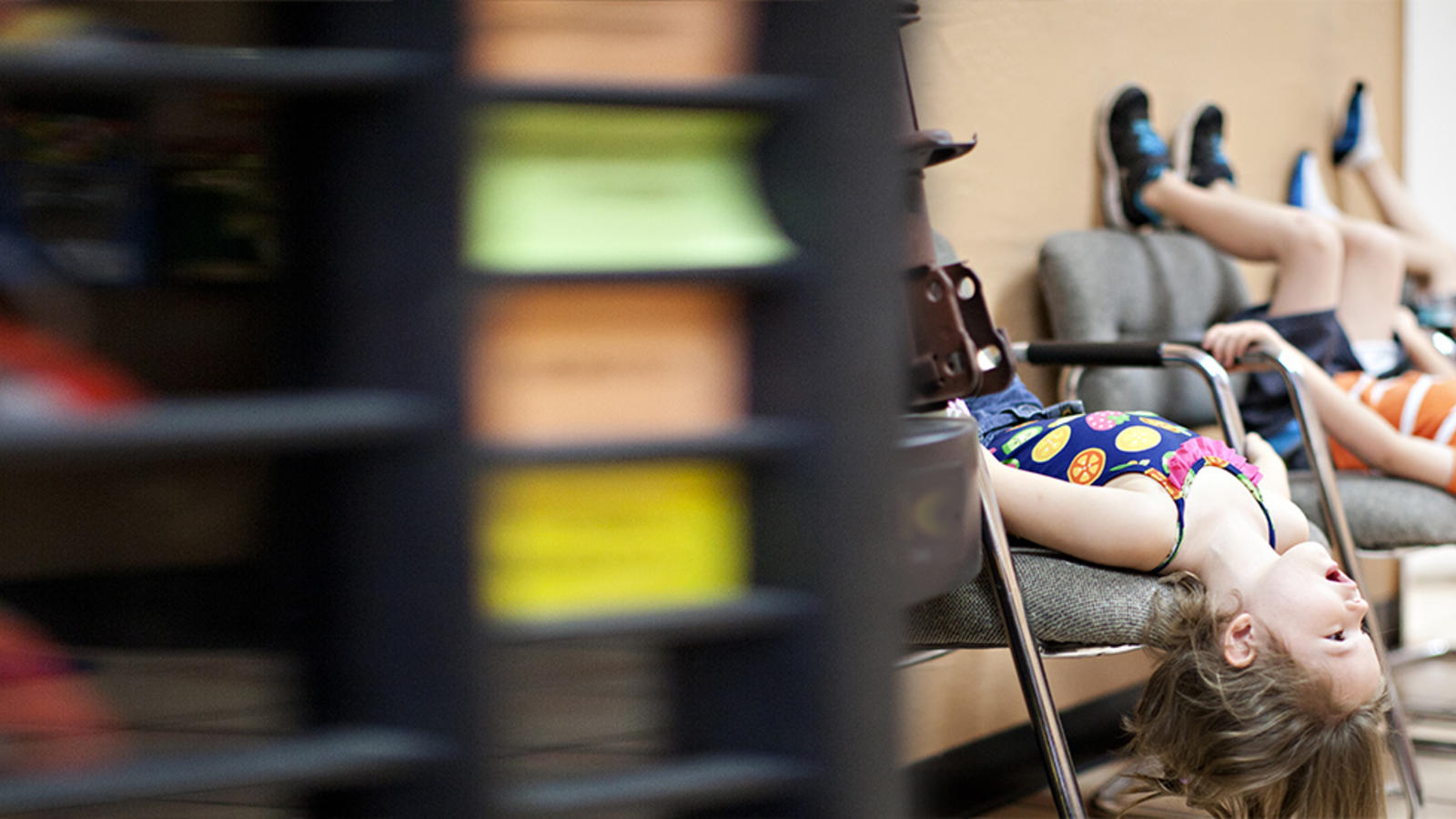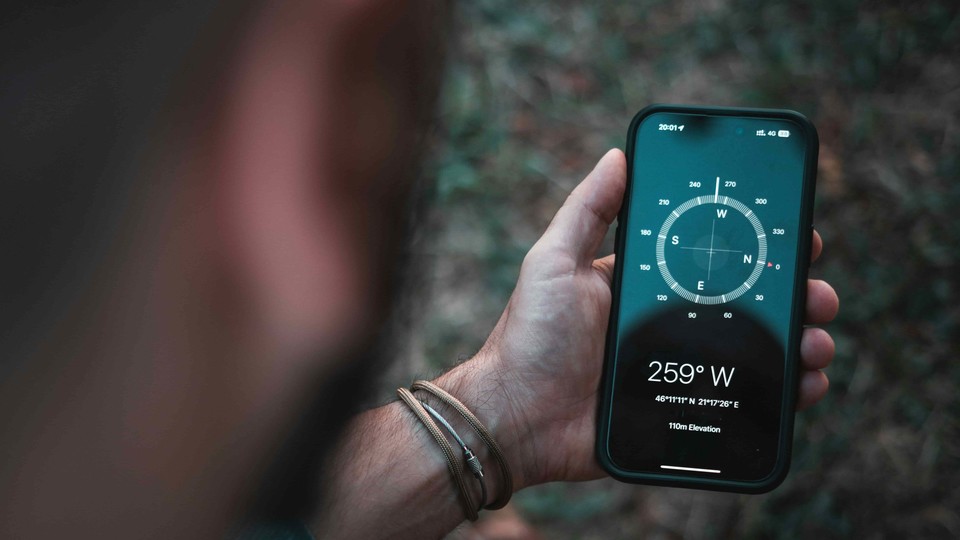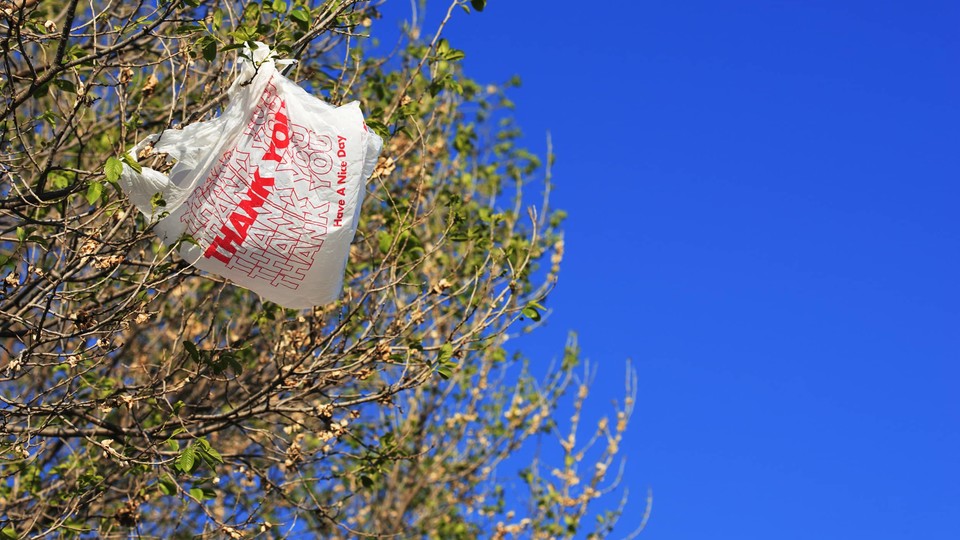
Meetings Of The Bored
An Active Mind Isn’t Always The Best One. Sometimes It Takes Boredom To Bring On Brilliance
By G. Anthony Gorry (1941-2018) and Robert A. Westbrook
An Active Mind Isn’t Always The Best One. Sometimes It Takes Boredom To Bring On Brilliance
This article by Friedkin Professor of Management Tony Gorry and the William Alexander Kirkland Professor of Business Robert A. Westbrook originally appeared in the Fall 2014 issue of the Rice Business Magazine.
In every age, leaders of businesses have encountered obstacles on their paths to success. Often changing circumstances have thwarted previously prepared plans. Then, the work of the mind took precedence over that of the hand. New ways were needed to prosper in changing competitive environments. Sometimes a single, grand conception restored a company to prosperity; other times, it was a number of lesser ideas knitted together fortuitously. Hope for such innovations rested largely on the creativity of executives.
A prominently placed "suggestion box" acknowledged that good ideas might come from workers whose job descriptions said nothing about innovation. Indeed, two decades ago, when the concept of intellectual capital first entered the management literature, journalist Thomas Stewart took it as the "sum of everything everybody in your company knows that gives you a competitive edge in the market place." In this view, what a company knows emerges not just from its leaders, but as well from the experiences, insights and intuitions of a wide range of employees. Everyone is a potential source of innovation.
So in recent years, businesses have launched comprehensive programs to tap the collective brainpower of their employees. Attention is paid to the insights of the worker on the shop floor, the customer representative, the logistic team, which had for long escaped recording and cataloging. Networks linking workers and processes across different companies undergird many recent increases in productivity, rewarding businesses that know what they know — and know it right away.
That we are attached to information technology is readily apparent to even the most casual observer. It permeates our lives and shapes much of our experience of the world. Less apparent are ways in which our intimacy with these machines is changing us.
We might expect, for example, that our growing intimacy with digital machines will swell an electronic suggestion box to foster innovation and promote organizational growth. Perhaps, but we have our doubts.
Wander the hallways of a large business. Look for contributors to our imagined suggestion box. Here's a meeting in the executive suite. See heads bowed as though in contemplation. Perhaps they're pondering strategic challenges facing the company. More likely, they're eyeing their personal digital assistants, checking email, the latest news, Facebook or Twitter. Some may think they're concealing their dalliances in the virtual world. Others, avid users themselves, know what's going on. Their attempts to hide their distractions are often half-hearted.
On the floor below, we pass several employees unwrapping sandwiches for a quick lunch. They plan to review progress on a task force report. Again, heads are bowed. Are they saying grace over their food? More likely, like the executives above, they're turning to smart devices for engagement, tuning out colleagues.
Walking on, we ask our host about the company's recent activities. While she gives us an overview, she too checks her smart phone, almost as if she needed a script for her answers.
She seems distracted. Maybe she's already devoted enough time to us and needs to get on to more important matters.
Sherry Turkle says "talking to each other is perceived as exhausting, and we happily retreat into worlds where we communicate only with machines." Maybe we're exhausting her.
At times, everyone has wished for escape from the here and now. Doodling, gazing out the window, empty-headed nodding or long, pregnant pauses: All are ways to check out of dull, uninspiring encounters. Digital technology, however, has greatly expanded the opportunities for flight. Throughout the organization, as in social life generally, its widespread use has altered the rules of civility. Device at the ready, we put our colleagues and family members firmly on notice that we won't tolerate boredom to the degree that was once expected of us.
Boredom is a cloud to be banished as quickly as possible. Our mobile devices stand ready to suppress even its most wispy beginnings. In lines, at street crossings and in waiting rooms, wherever there might be a break in life's action, shorter and shorter intervals of time now demand filling. Something may have just happened to someone, somewhere. We check and check again. We flee our own thoughts to entertainments fashioned by others. But a flight from boredom can be a flight from creativity, because it is from boredom that new ideas and connections emerge, in the executive suite and on the shop floor.
What of our imagined suggestion box? Its value depends on contribution, assessment and dissemination. First, managers and workers need to volunteer insights regarding their jobs and improving the performance of the business. Next, from those contributions must be selected knowledge and practices that most promise benefits, grand or small. Finally, the chosen innovations must be shared and improvements must be anchored in the ways of the company.
Failure in any of these steps locks creativity within one part of the organization, unrecognized and unexploited by others. Too often then, errors will be repeated; opportunities, lost; and innovations, unrealized. Even strategic opportunities may be foregone.
What of those we've just seen in our walk through the company? Their devotion to machines makes them uneasy in life's slower moments. Those who are uncomfortable with boredom may contribute less to the company's intellectual capital. When we tap the suggestion box, we may find its contents have dwindled.
Although boredom has been a concern of philosophers and scientists for ages, its nature and cause remain elusive. Boredom may arise from an existential perception that life is empty. Psychologists and social scientists have found that commonly and less dramatically, we are bored when we judge an activity unworthy of our attention. Tasks that are too simple allow attention to wander, creating dissatisfaction with the job at hand. For ages, meditative teachings have countered such boredom by avoiding judgment of the worth of activities. For most of us, however, parental advice ran in a different direction: "Find something to do!" But finding too much to do may also induce boredom, because attention is pulled in too many directions. Then we need to step aside, to do less, to reflect.
In the 1800s, Charles Baudelaire confronted a new Paris thrust up in the midst of the old by commercialism. Most startling were the throngs in the streets, the plentitude of the marketplace and the new architecture of the city. How should a thoughtful person manage interactions with such a myriad of people and things? The crowd offered spectacles and enticements, often quite unexpected, as Baudelaire describes in one of his poems. A woman passing by briefly intoxicates him, but he cannot know what path either she or he would follow into the future. She was just one of some many brief experiences: accidental, anonymous and transitory to be encountered in the tumult of the new Paris.
Baudelaire felt the onset of a new kind of boredom induced by an acceleration that threatened to make life just a series of fleeting impressions. He said that of the "squalid zoo of vices" that plagued his time, boredom "is even uglier and fouler than the rest." It would gladly swallow all creation in a yawn. In the face of restless activity and frightening anonymity, the wanderer was always on the lookout for novelty of experience or observation that would penetrate the fog of the teeming crowd and restore him to life. But each new event or encounter, which promised so much, proved just as empty as its predecessors.
Much the same could be said of today, although we more often wander electronic byways rather than cobbled streets. In the burgeoning crowd of cyberspace, we are dissatisfied with our situation and wish to be elsewhere, doing something different. We could turn away from the distractions of our bustling electronic byways, but such a departure seems to demand more energy than we can muster. Even when we take such a break, we may find we've forgotten how to be comfortable with ourselves. Something deep within urges us to rejoin the crowd.
Today's world of tweets bears vestiges of the long trek our ancient ancestors took to become human. Along the way, emotional sensitivity to others was joined by strong curiosity about them, a desire to know what they were thinking, feeling and scheming. Once we became capable of creative reflection, we no longer had to satisfy this desire in actual social situations; we could find pleasure in imagined activities and interactions. In today's fluid electronic arenas for gossip, preening, and posturing, users "strut their stuff" with embellished self-descriptions and accumulations of "friends" from far and wide. Scores and stars announce prowess. These designations would mean little, had evolution not made us so drawn to groups, so sensitive to trappings of rank, and so irresistibly drawn to judge and categorize others. Our brains hunger for participation and status, and our smartphones and tablets stand ever at the ready to feed them. We love these devices, because we were born to love them.
In an old vaudeville act, a man set plates spinning atop a row of poles. Back and forth he hustled from one pole to another, giving each just enough spin to keep its plate from falling. As he attended to one plate, others teetered precariously. Too much attention to one meant disaster for others. Not enough meant that this one would fall. Success depended on giving to each pole just enough attention to keep its plate aloft. As he went, an assistant added new poles and plates, demanding even more speed from him. He had to conduct the remainder of his act on the dead run.
Our plates and poles today are digital messages. Work, home, social networks all clamor for our attention. Proud of our ability to sustain the pace of life in the digital age, we race from email to cell phone to computer screen, spending enough time on each task only to keep it spinning. We even add new poles as we race along.
The two of us, who have been around for a while, no longer make good vaudevillians of the plate spinning kind. The pace has become too swift. We need some proverbial peace and quiet.
But what of the many others, who are unnerved when life slows and not much seems to be happening? It isn't crashing plates they fear. It's spending too much time on one thing when something else might be happening.
They take boredom as a signal to move on, to focus attention on something else. For many, that feeling arises ever more quickly. Students, who once happily watched a five-minute video in class, now get itchy after a minute or so. News stories are compressed. Executives want complex matters reduced to bullet points for quick consideration. Consumers choose movies, restaurants and books on anonymously awarded stars, because who has the time to read up on these subjects? It's so boring.
In today's fast-paced life, we could have the time to read, ponder, investigate and slog along. Absent the sirens of digital technology, perhaps we might do so. Reading makes many uncomfortable, when, for example, long sentences with subordinate clauses run on for more than a line or two, describing situations or putting forth arguments, which well may be central to the subject being written about, but as they proceed, seem to test our powers of concentration, which have been tuned by the terse text of instant messaging where compression of language and perhaps of thought hold sway. A vaudevillian living in a world of hyperlinks and bullet points reads the first of the previous sentence and mutters, "Oh, get on with it!" and jumps to an email or text message that might be more "interesting." We want at most the general idea, to learn just enough, just in time.
Walter Benjamin argued that a story claims a greater place in our memories when the teller allows us to embellish it for ourselves. The more we integrate the story into our own experiences, the greater will be our inclination to repeat it. In the retelling, it may assume new and deeper meanings. This is true not just of stories told by others, but of those we tell ourselves. Tennessee Williams claimed "that life is all memory, except for the one present moment that goes by you so quickly you hardly catch it going? It's really all memory . . . except for each passing moment." Quickly we weave moments of an experience into a story, however brief, which embodies our memory of it. In reminiscence, we return again and again to inspect, edit, and embellish the story. In making plans, we may intertwine a variant of the story with imagined acts in and imagined history of the future. Unless we simply copy someone else's story, we need inspiration to write our own. But the assimilation of a story requires a state of relaxation, which even before the Internet era was becoming rare.
Benjamin said boredom is the apogee of mental relaxation. The self-forgetful listener who puts aside the press of life and attends deeply to his memory prepares the nesting area for the dream bird, Benjamin's metaphorical bringer of insight and understanding. In quiet disengagement from the bustle of the world, the dream bird hatches the egg of experience.
Many of us could benefit from this bird's visit, but we need "down time" to welcome it in.
Today, however, our machines are always at our side, to fill that quiet time. We push letters onto a Scrabble board, fight off attacking aliens or draw pictures for another to guess.
Enticements delivered to cell phones demand attention that once would have been devoted to the meeting agenda, the dinner companion, the teacher or even reverie. They rustle the leaves and drive the dream bird away.
Enthusiasm for these simple games underscores our brains' need for engagement and status. Points or promotions, stars or scores assure us of our skill and pats on the back keep us going. If we don't feel competitive, there are other applications that promise tidbits of information as tokens we can collect. What is the current temperature in Paris, the score of the Yankees' game, the change of a stock price from ten minutes ago? We ask these questions, not because their answers are important, but because they can be answered by our digital devices. They give an immediate purpose, however small, to idle time. Each reward is a note in a siren's song that draws us ever deeper into technology's domain.
Digital distractions will proliferate. Many presently inert objects will become interactive. Perhaps our cereal boxes will challenge us to a simple guessing games at breakfast: win points for the next trip to the market by ranking food combinations by calories. Think of all the places that have already been invaded by advertising. To imagine a likely future, think of many of those sites as places for games. Idle moments in which we could reflect on what has happened to us, what we have done, and the interactions we have had with others — those moments will be increasingly filled with imaginative engagements with the virtual. The dream bird will get chased away by a call from a cereal box.
To quarrel with technology is to quarrel with human nature. Our intimacy with machines will increase. So what of boredom? Inherited urges may incline our behavior, but they need not determine it. If, fearing moments with nothing to do, we turn to machines for constant entertainment and engagement, we will lose time for invention. If we don't pause between tasks to reflect on our lives, we may not know where we are or where we are going.
Instead of fleeing seemingly empty moments, we should welcome them in moderation. Indeed, we should create times of solitude in which we plan to do little. Creativity is the residue of time wasted, Albert Einstein supposedly said. But how do we find time for "doing nothing" in our economy of speed and efficiency? When everyone else is working "leaner," isn't it unwise to indulge in reflection that can't be easily monitored or measured? Our quick answer: don't bet everything on the hare; wager a bit on the tortoise. Put aside the machines we love — at least for a time.
Recently, Pulitzer Prize-winning journalist Matt Richtel reported on a rafting trip taken by five neuroscientists in a remote area of southern Utah. They sought to understand how intense involvement with digital devices changes how we think and behave. Would a retreat into nature reverse any adverse effects?
They went off the grid, leaving laptops and cellphones behind. As days passed, the time of the wilderness supplanted that of the digital world. Conversations were interspersed with periods of silence in the presence the wonders of the surroundings. As the river flowed, says Richtel, so did ideas.
One of the travelers noted that, "the real mental freedom in knowing no one or nothing can interrupt you." We suspect Einstein would have concurred. Benjamin was no scientist, but he would have stood well in that company. Be quiet and wait. Be bored. The dream bird will come.
Think of the future time as a wilderness, and you as its steward. Of course, you'll allocate significant parcels to industry — to activities appropriate to your work and home life. Some of that space, however, should be reserved, much as the Utah backcountry, where the ways of life are slower and less congested. Preservation requires vigilance and determination. Once, for example, vacations meant time away, time without the interruptions of everyday life. Traveling in a car or plane offered shorter versions of the same. Now, like developers falling on pristine land, smartphones and wireless networks have colonized that time. They have bought their way in by feeding our brains' voracious appetites for stimulation.
Writing, printing, the cinema, television and other precursors of our inclusive cyberspace substantially changed how we gather and share what we know. They disrupted long-standing social structures and expectations of personal behavior. While life is not determined by technology, each of the innovations, which now seem a part of the natural world, exacted a price. In dealing with our smart devices, we need to take a stronger negotiating position.
We are paying too much to quell our fear of boredom, too readily yielding our refuges to the rush of the now.
We should protect segments of time, putting smartphones and tablets aside, leaving our desktop computers. Just sitting, walking, gardening, talking with friends: these are but a few ways to enter our own personal wilderness.
When we slow down, we may at first be bored, but soon, we are apt to find much to do. Perhaps the dream bird will come, bringing us a new addition for our organization's suggestion box. Or perhaps something just for us. Even if it doesn't, we are likely to return to the rush of the digital age with a better sense of who we are — and who we want to be.
Tony Gorry was the Friedkin Professor Emeritus of Management at the Jones Graduate School of Business at Rice University and Robert A. Westbrook is the William Alexander Kirkland Professor of Business at Jones Graduate School of Business at Rice University.
Never Miss A Story


